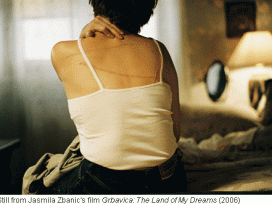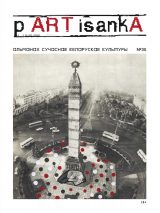Slavenka Drakulić
is a Croatian journalist, novelist, and essayist whose works on feminism, communism, and post-communism have been translated into many languages. She is a founder of Eurozine.
Her most recent book of essays Café Europa: Life After Communism was published by Penguin Random House US in January 2021. Her novels include Mileva Einstein, teorija tuge (Mileva Einstein, the theory of sadness) (Faktura 2016), Dora und der Minotaurus (Dora and the Minotaur) (Aufbau 2016), and As If I Am Not There (Abacus 2013). She lives in Zagreb and Stockholm.
Drakulić’s work has appeared in The New Republic, The New York Times Magazine, The New York Review of Books, Süddeutsche Zeitung, Internazionale, The Nation, La Stampa, Dagens Nyheter, Frankfurter Allgemeine Zeitung, Eurozine, Politiken and The Guardian.
Articles
Thousands of Europeans die annually waiting for a new kidney, heart or liver. At the same time, the black-market trade in organs is thriving, as a recent scandal in Germany has shown. So should organ trading be legalized? Slavenka Drakulic, herself a two-time kidney transplant patient, argues the pros and cons.

The tune of the future
Italy: old Europe, new Europe, changing Europe
Venice versus Lampedusa: travelling around Italy, Slavenka Drakulic observes one kind of Europe being replaced by another. Instead of attempting to conserve the cultural past, we should accept that migration will adapt much of what we consider “European” to its own image.
Who created Ratko Mladic?
What remains after a war criminal has been sent to The Hague
When Ratko Mladic faces the International Tribunal in the Hague, he is likely to use the defence of superior orders. But when he asks who it was who voted for Milosevic he has a point, comments Slavenka Drakulic. Will trading off Mladic for the EU allow Serbs to avoid the question of collective responsibility?
Discussing the topic of accountability for the war crimes committed in the former Yugoslavia is important for Serbian society, writes Slavenka Drakulic. Summing up a debate around her article “Why I have not returned to Belgrade” in the Serbian newspaper Politika, she notes: “Many citizens of both Serbia and Croatia seem to believe that if they all just shut up for long enough, the problem will disappear. But it won’t.”
We took its light for granted
In memoriam: Feral Tribune (1993-2008)
A former contributor to the Croatian weekly Feral Tribune writes that the paper was left to die by those who should have taken better care of it: its readers and all who cared for its lone, free, critical voice.
Bathroom tales
How we mistook normality for paradise
The death of toilet paper may not have been the sole reason for the collapse of communism, but it’s an apt metaphor for a regime unable to fulfil its subjects’ basic needs. Although Slavenka Drakulic’s bathroom is better stocked these days, she’s still prone to doubt: was the normality she and her fellow eastern Europeans longed for just another false paradise?
Nicht viele Frauen waren am Krieg beteiligt, schon gar nicht auf höchster Entscheidungsebene. Biljana Plavsic stand neben den Angeklagten Radovan Karadzic und Momcilo Krajisnik an der Spitze der Republika Srpska. Sie wurde wegen Verbrechen gegen die Menschlichkeit, Verstößen gegen die Kriegsgesetze und die Genfer Konventionen zu elf Jahren Freiheitsentzug verurteilt. Immerhin gehört sie zu den wenigen, die sich zu ihrer Verantwortung für Kriegsverbrechen bekannten.
Triumph of evil
Portrait of a war criminal
Radislav Krstic, General of the Republika Srpska army and Deputy Commander of Drina Corps, was the first war criminal sentenced for genocide by the ICTY. He was sentenced to 46 years of prison for ordering the deaths of over seven thousand Muslim men were executed, in the UN safe area of Srebrenica, between 13 and 19 July 1995, while 30,000 people were forcibly deported. Slavenka Drakulic witnessed the trial and traces Krstic’s biography.




